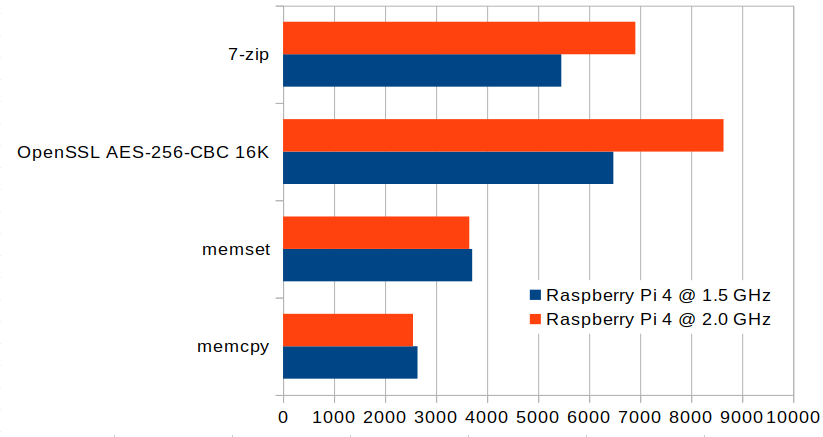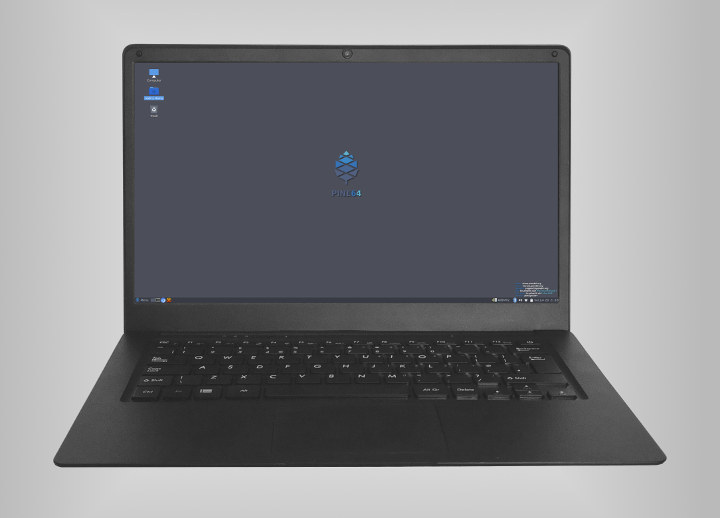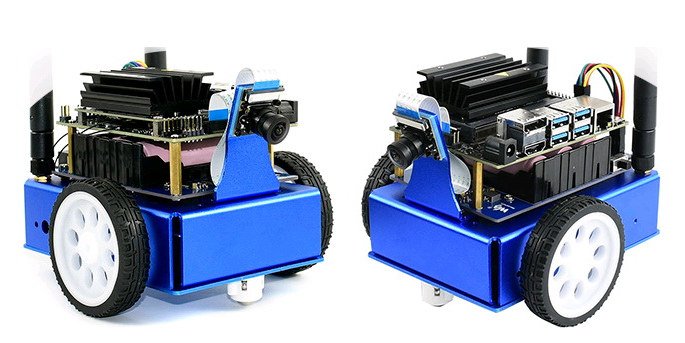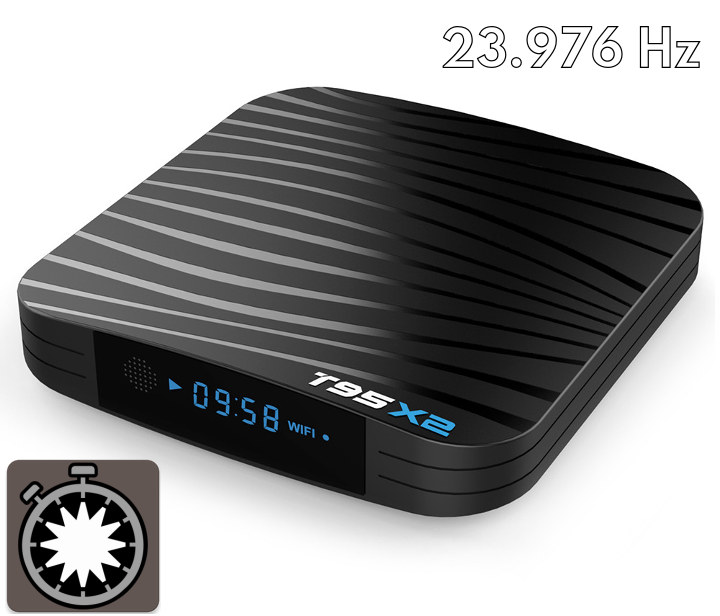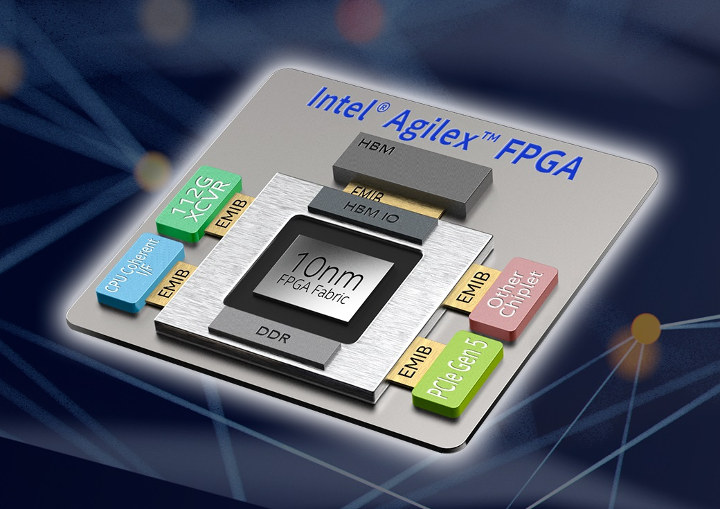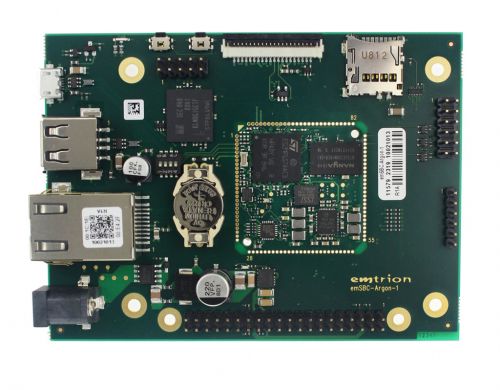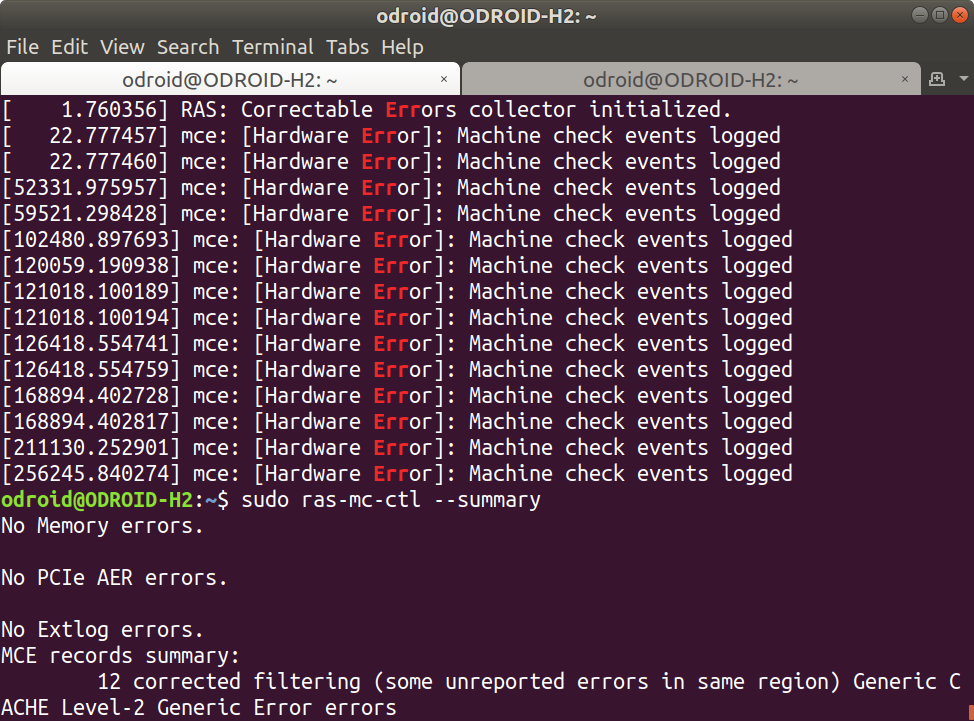If you were interested in purchasing, or more exactly pre-ordering, a privacy-focused, open source Linux smartphone with clearly defined hardware specifications, Purism Librem 5 was not quite for you. Until today that is, as while the company did not commit to exact specifications at the beginning of the project, Purism has now revealed the full specifications of Librem 5 Linux smartphone. Librem 5 specifications: SoC – NXP i.MX8M quad-core Cortex A53 @ up to 1.5GHz, Cortex-M4 real-time core, 3G GPU with OpenGL/ES 3.1, Vulkan, OpenCL 1.2 support System Memory – 3GB RAM Storage – 32GB eMMC flash, MicroSD slot up to 2 TB Display- 5.7″ IPS TFT touchscreen with 1440×720 resolution Connectivity Cellular Option 1 – Gemalto PLS8 3G/4G modem w/ single sim on replaceable M.2 card Option 2 – Broadmobi BM818 (made in China) nanoSIM tray Dual-band 802.11a/b/g/n WiFi 4, Bluetooth 4.0 GPS – Teseo LIV3F GNSS Cameras – […]
How to Overclock Raspberry Pi 4 to 2.0 GHz
Yesterday I played with my new “ICE Tower CPU cooling fan” for Raspberry Pi 4 which cools the board just great but is clearly over the top. Regular reader and commenter m][sko mentioned it was possible to overclock Raspberry Pi 4 to 2.0 GHz after a firmware upgrade. That looks like a perfect task for my new fansink! I’ve upgraded both the firmware and operating system:
|
1 2 |
sudo rpi-update sudo apt dist-upgrade |
then edited /boot/config.txt as root (sudo) to add the following lines to boost the maximum frequency to 2.0 GHz:
|
1 2 3 |
force_turbo=0 arm_freq=2000 over_voltage=6 |
Do not try to set force_turbo=1, as while it would allow to further boost the voltage, it will change a fuse in the chip, and it will void your warranty. We can now reboot the board to validate the settings, and check those are applied:
|
1 2 3 |
vcgencmd get_config int | grep "arm\|over" arm_freq=2000 over_voltage=6 |
Good. At idle the frequency is lower, but that normal:
|
1 2 |
vcgencmd measure_clock arm frequency(48)=666826176 |
Voltage is set to 1.0335V:
|
1 2 |
vcgencmd measure_volts volt=1.0335V |
[…]
PineBook Pro Arm Linux Laptop now up for pre-order for $199.99
Pine64 unveiled a Pinebook Pro laptop prototype at FOSDEM 2019 as an update to the original Allwinner A64 powered Pinebook laptop, but instead of just being a toy to play with, Pinebook Pro aimed to be used as a daily driver thanks to a relatively powerful Rockchip RK3399 processor combined with 4GB RAM, and 64/128GB storage, and equipped with a 14″ Full HD display all for a target price of $200. Last May, we noticed some good progress on the software development side with a demo showcasing Ubuntu & Debian with MATE desktop, 4K video playback, 3D graphics acceleration, and USB-C video output. The good news is that Pinebook Pro has just launched and can be pre-ordered for $199.99 on Pine64 store. [Update: If you are an existing forum member, you may want to redeem your coupon here] Pinebook Pro laptop specifications: SoC – Rockchip RK3399 big.LITTLE hexa-core Arm Cortex […]
Waveshare Jetbot AI Kit for NVIDIA Jetson Nano Board Sells for $100 and Up
NVIDIA Jetson Nano developer kit was launched for $99 last March with impressive specifications for the price including one module with four Arm Cortex-A57 cores, a 128-core Maxwell GPU, and 4GB LPDDR4 RAM. The company also introduced Jetbot robot based on the new board, with all instructions available on Github, but until now you had to put some efforts to build it up as the fairly long list of parts had to be purchased or 3D printed separately. It’s now become easier, as Waveshare has started selling their Jetbot AI kit on Amazon for $122.99 without Jetson Nano, and $259.99 with, meaning you may be better off purchasing NVIDIA board separately for around $100, or you may purchase the complete kit directly on Waveshare website for $215.99 plus shipping, or $99.99 without the SBC. Jetbot AI kit content: Optional NVIDIA Jetson Nano SBC 64GB micro SD Card Metal box Camera […]
AFRd Auto Frame Rate Daemon Works with 64-bit Amlogic Processors
Automatic frame rate switching in TV box ensures video output matches the video frame rate in order to avoid skipped frames (judder) from time to time, and makes the videos much smoother to watch, especially to trained eyes. The problem is that the feature is not always implemented, and/or does not work for all apps. AFRd auto frame rate daemon aims to solve this issue by automatically switching video output to match the video framerate – e.g. 23.976 fps or 59.94 fps – on Android TV boxes powered by one of Amlogic 64-bit processors, be it S905, S905X, S905X2, S912, S905W and other more recent Armv8 processors from the company. Developed by Andrey Zabolotny (anpaza), AFRd is Linux daemon can be linked to either bionic for Android, or glibc for Linux operating systems, and the source code can be found on Github. It relies on two techniques to detect the […]
Intel Agilex SoC FPGA Features Four Arm Cortex-A53 Cores
Intel announced their new Agilex FPGA family manufactured with a 10nm process earlier this April, but it only caught my eyes recently when I saw “Agilex SoC FPGA” listed in Linux 5.2 Arm’s changelog. The Intel SoC FPGA is there simply because it comes with four Arm Cortex-A53 cores. Three family have been announced so far, although the later is shown as coming soon: Intel Agilex F-Series FPGAs and SoCs – Transceiver support up to 58 Gbps, increased DSP capabilities, high system integration, and 2nd Gen Intel Hyperflex architecture for a wide range of applications in Data Center, Networking, and Edge. Option to integrate the quad-core Arm Cortex-A53 processor. Intel Agilex I-Series SoC FPGAs – Optimized for high performance processor interface and bandwidth intensive applications. Coherent attach to Intel Xeon processors with Compute Express Link, hardened PCIe Gen 5 support and transceiver support up to 112 Gbps. Intel Agilex M-Series […]
Emtrion emSBC-Argon Features STM32MP1 Dual Cortex-A7 / M4 Processor
The latest board to use the STM32MP1 dual Cortex-A7 and the Cortex-M4 processor is the Emtrion emSBC-Argon, which adds to SBC’s such as the PanGu Board. The emSBC-Argon, is a powerful yet reasonably priced SBC that is feature-rich and out-of-the-box ready. The low-power needs of the board enable it to run real-time processing. Protocols such as PROFINET, EtherCAT, EtherNet/IP are all available and ready to run real-time processes and communication applications. Key Features: STM32MP157AAC processor from STMicroelectronics Arm Dual Cortex-A7 @ 650MHz – 2470 DMIPS Arm Cortex-M4 @ 200MHz – 250 DMIPS Co-processor: ARM Neon, FPU, and 3D GPU Operating system: Linux or Android Virtualization capable (Jailhouse) Up to 512 MB DDR3L SDRAM 8GByte (up to 64 GB) eMMC Flash Up to 8 MB of QSPI-NOR-Flash 2x FD-CAN 2.0 Dimensions: 104.5 x 77.5 mm The emSBC-Argon is capable of virtualization using Jailhouse, for those real-time functions that require breaking down […]
Checking Out Machine Check Exception (MCE) Errors in Linux
I recently reviewed ODROID-H2 with Ubuntu 19.04, and noticed some errors messages in the kernel log of the Intel Celeron J4105 single board computer while running SBC-Bench benchmark:
|
1 2 3 4 5 6 7 8 9 |
[180422.405294] mce: [Hardware Error]: Machine check events logged [180425.656449] mce: [Hardware Error]: Machine check events logged [180483.582825] mce_notify_irq: 17 callbacks suppressed [180483.582827] mce: [Hardware Error]: Machine check events logged [180484.991484] mce: [Hardware Error]: Machine check events logged [180594.700684] mce_notify_irq: 13 callbacks suppressed [180594.700686] mce: [Hardware Error]: Machine check events logged [180858.202115] mce: [Hardware Error]: Machine check events logged [181178.047031] mce: [Hardware Error]: Machine check events logged |
I did not know what do make of those errors, but I was told I would get more details with mcelog which can be installed as follows:
|
1 |
sudo apt install mcelog |
There’s just one little problem: it’s not in Ubuntu 19.04 repository, and a bug report mentions mcelog is not deprecated, and remove from Ubuntu 18.04 Bionic onwards. Instead, we’re being told the mcelog package functionality has been replaced by rasdaemon. But before looking into the utilities, let’s find out what Machine Check Exception (MCE) is all about from ArchLinux Wiki: A machine check exception (MCE) is an error generated by the CPU when the CPU detects that a hardware error or failure has occurred. Machine check exceptions (MCEs) can occur for a variety […]



